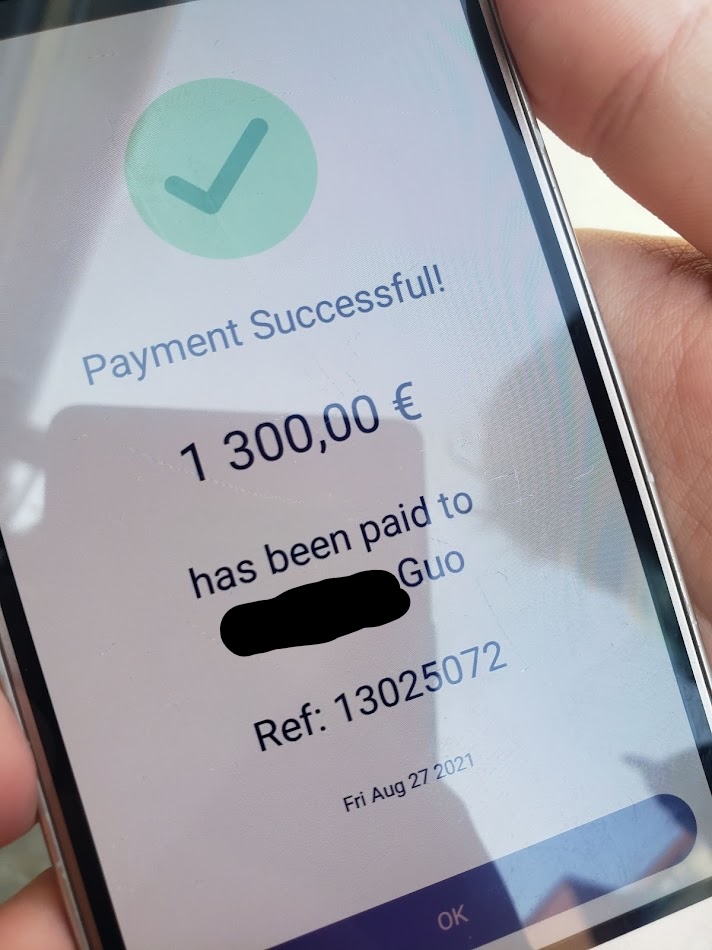A Trinity student has reported falling victim to a new online fraud scheme.
Guo, a PhD student in the department of geography, spoke to Trinity News this week about his experience, in which he had his iPhone and iPad stolen.
Guo advertised his Samsung phone and iPad for sale on Facebook, and was approached by a man who offered him €1300 for both.
Guo met the individual outside his apartment on August 27 to conduct the transfer. At the meeting, the individual in question offered to transfer the money immediately.
Guo explained how the individual requested him to double check, and to take a photo of the transfer as proof of payment. The photo taken appeared to show that the money had been sent.
Stating that he used a different bank to Guo, the individual informed him the money would take one to two hours to go through. However, after checking his account on August 30, Guo saw the money had not arrived into his account.
At this point, Guo was still in contact with the individual, who had been “really good” and pleasant to deal with. The man agreed to meet Guo again, but did not show up. He later apologised to Guo and agreed to reset a date.
He then informed Guo that due to family matters he was leaving the country. According to Guo, the individual reassured him that as soon as he returned, they would meet up and resolve the issue with the transfer.
Having waited until August 31, Guo approached Bank of Ireland, and subsequently An Garda Síochána, and was told to wait for the money to arrive, as it was suspected to be a delay.
Guo then contacted the individual on September 1, who responded and alleged that he would check his own bank details. However, from the following Thursday, he then cut all contact with Guo, who filed a criminal report on September 3.
Guo contacted the individual one last time to inform him of the situation but received no response. Guo has now been informed by Gardai that he has been targeted by a scam which uses an app that falsifies bank transfers, and makes it appear as though money has been sent between accounts.
Guo confirmed to Trinity News that the individual had been using a fake account on Facebook.
Guo commented that: “At that time, I didn’t think too much about it, because he showed up and talked to me face to face.”
Guo has since been made aware that several others had been targeted in a similar way.
One individual wrote online that the scammer in question made sure the person selling the phone stayed with him until he was sure he had gotten a reference number and the money had gone through. After this the scammer cut communications.
The app used is P.bank (“prank bank”), an android app that can be used to effectively replicate any branded bank the owner wishes. It then can be used to effectively replicate the transfer of money.
Speaking to Trinity News, Guo said he wished to share his story to caution others against falling for similar scams.
The previous article included the first name of the student involved in this article, whom had wished to remain anonymous and was updated to amend such.






